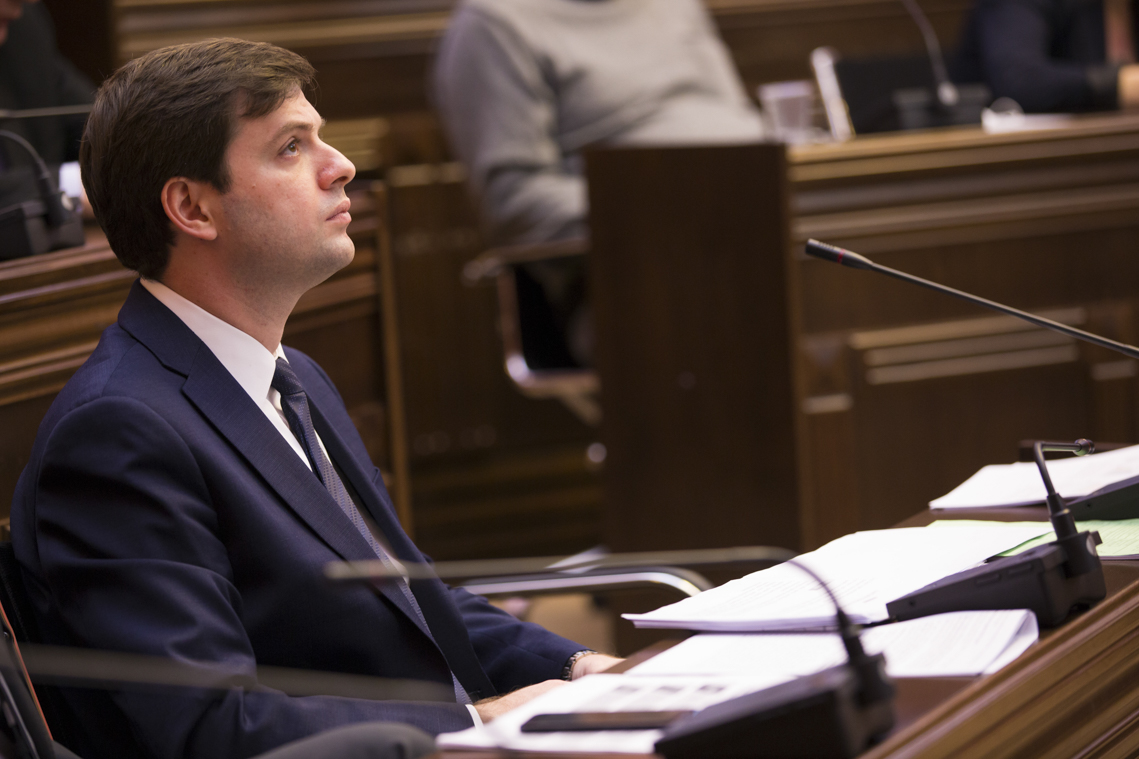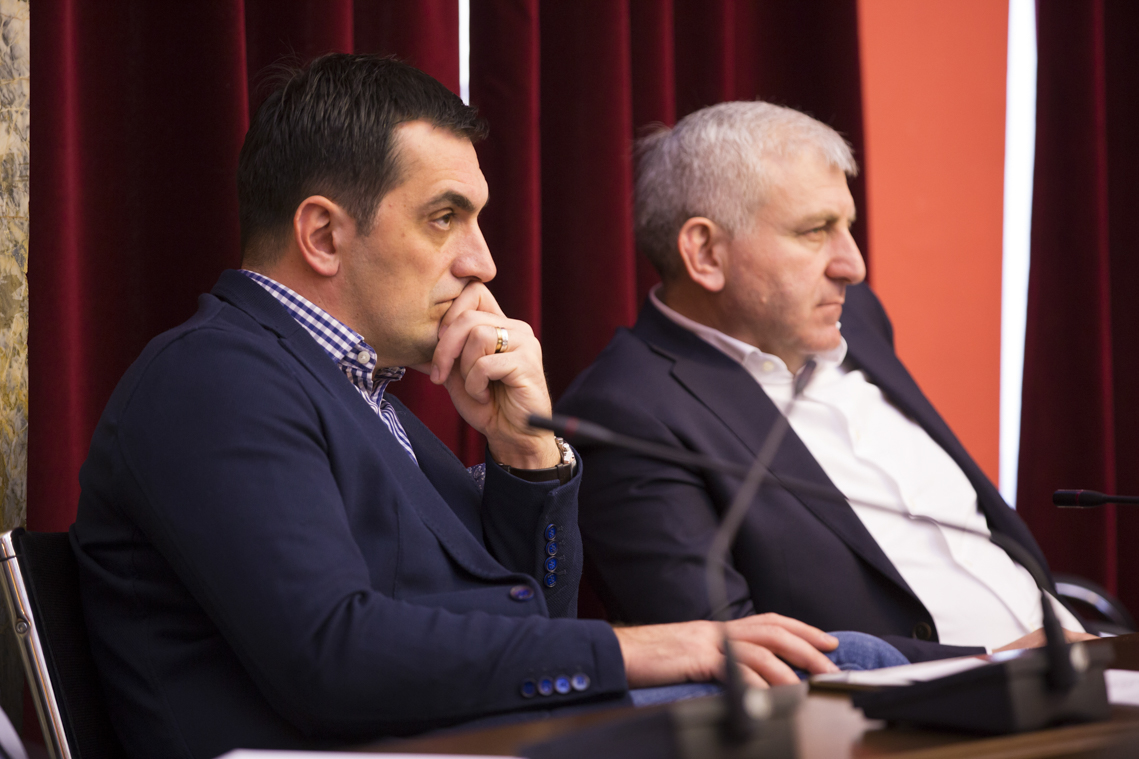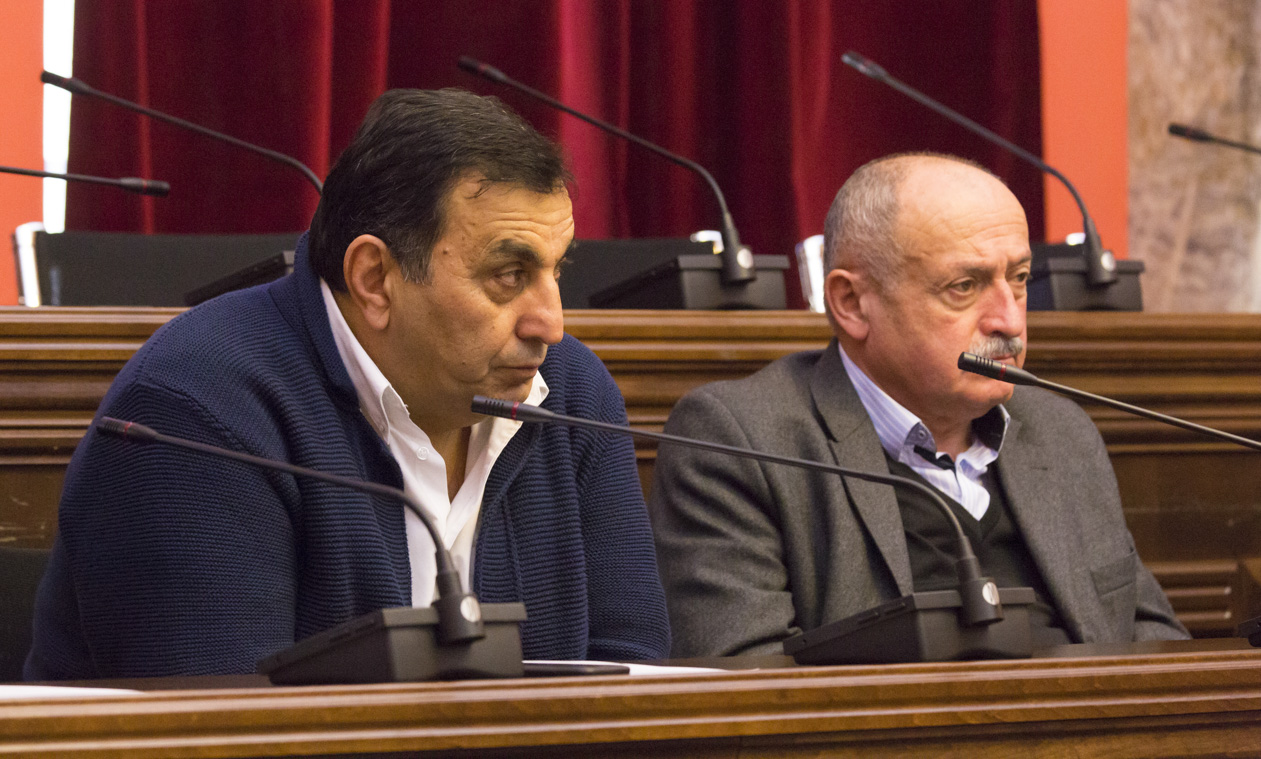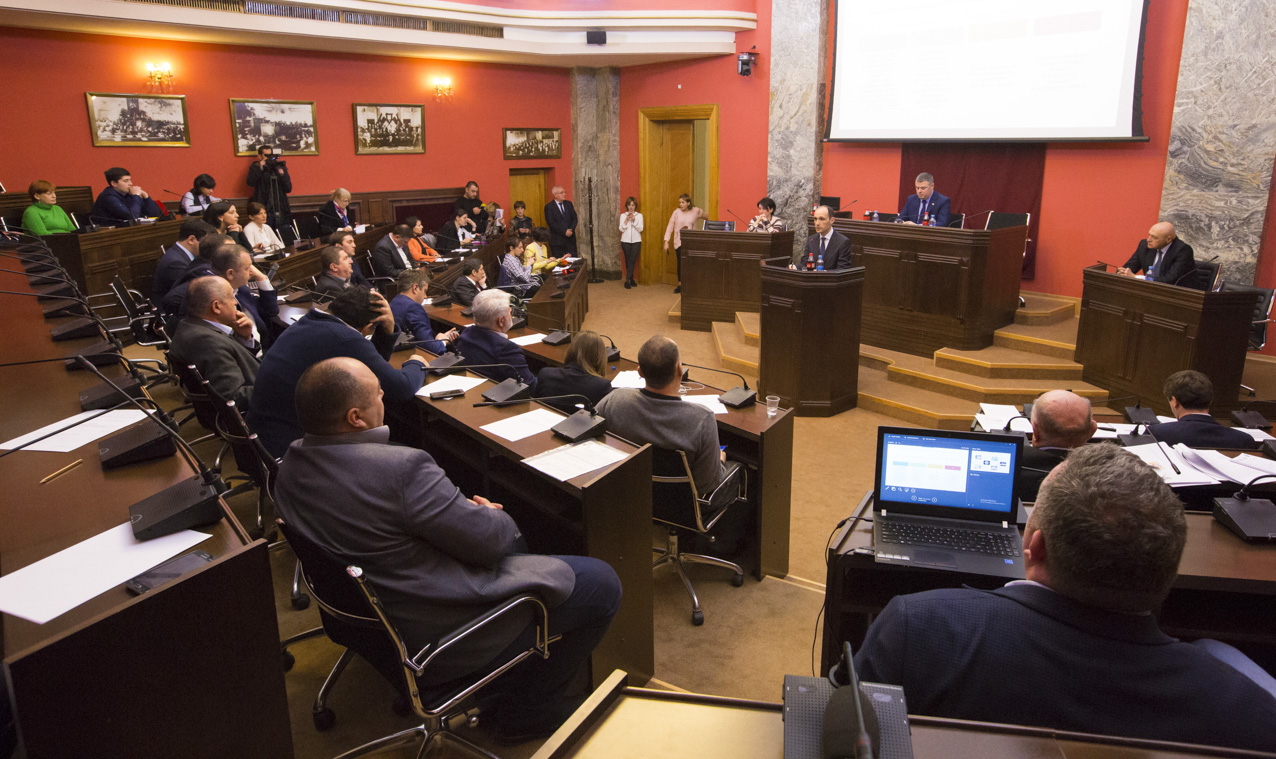News
2017 report on the implemented activities submitted by Levan Davitashvil
At the sitting of Agrarian Issues Committee of the Parliament of Georgia, the Minister of Environmental Protection and Agriculture, Levan Davitashvili presented the report on the activities carried out in 2017.The Minister spoke about the growing trend of agricultural production in the agribusiness sector and noted that in 2017 output of primary agricultural products, as well as total output of food products made by processed agricultural products is increased by 32 percent. compared with 2012.In 9 months of 2017, the total output of agribusiness amounted to 6.7 billion gel, which is 5 % more than the same period of the previous year. Value added created in agri food sector is also increased. In 9 months of 2017, the value added in the agriculture sector amounts to 2 billion GEL at current prices, which is 3 % more than the figure we had in the previous year.
According to the preliminary data of 9 months in 2017, the number of direct foreign investments in agriculture sector amounted to 9.2 million US dollars, which is 15 % higher than it was in 2016
According to the data of 2017, Georgia exported 777 million US dollars worth of agro products, which is 12% higher than in 2016 and 52.2% more than the same data in 2012.
The activities to promote agricultural cooperatives, arrangement of irrigation and drainage systems, support harvest 2017, viticulture cadastre and promotion activities and events to boost popularization of Georgian wine was highlighted by the Minister at the meeting.
It was noted, that 24 024 control activities was carried out in the field of food safety in 2017; Important measures have been taken in the fields of plant protection and phytosanitary reliability to ensure animal health, take preventive vaccination against various diseases.
Levan Davitashvili, stressed the importance of scientific and research works, also laboratory capacities and potential to increase agricultural capabilities in the country and noted that creation of flexible service system will help farmers and target groups to sell their products in the EU market.
The Minister was focused on the Agricultural Extension Strategy, thereby he reviewed and analyzed various opinions, suggestions and recommendations and noted, that the Ministry of Environmental Protection and Agriculture of Georgia with the support of United Nations Food and Agriculture Organization (FAO) has finally developed and presented Agricultural Extension Strategy.
The main challenge of the country's agricultural expansion is to increase competitiveness of agriculture through introduction of new technologies to farmers by transferring knowledge and new technology.
the Minister underlined the importance of Agriculture Project Management Agency projects – Preferecial Agro Project, "Plant for the future", Agro insurance, Agricultural products processing and storage enterprises, Tea plantations rehabilitation program, Promotion of agricultural production and introduced the participants with the achieved results.
According to Levan Davitashvili, according to February 01, 2018 data, 166 new enterprises have been opened and 845 enterprises have been expanded.
It was noted that, according to DCFTA Agreement IV chapter (comprising of sanitary and phytosanitary measures), Georgia has taken an obligation to bring the country's legislation closer to the EU legislation in the food / animal food safety, veterinary and plant protection areas. Terms of legislative approximation are set according to the Annex XI B of the DCFTA Agreement. In 2017, there were 17 legal acts.
Levan Davitashvili spoke about the activities carried out against the Asian stink bug and measures planned for 2018.
As the Minister noted, in 2017, on the basis of experience and measures taken against the invasive stink bug "state 2018 program against the Asian stink bug" was developed and approved.
The aim of the program is to reduce and control the population of the pest, minimize the loss of agricultural and forest crops and reduce economic damage. The main principle of the program is the joint involvement of the state and society.



